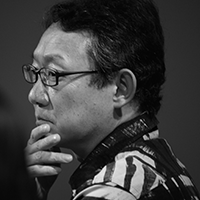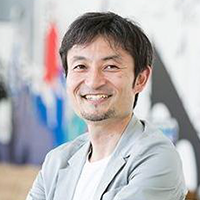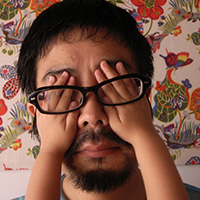Event
ⒿUeno Park Studies, Part I: ‘Out in Ueno with The Book of Tea’
Chihiro Minato, Fumihiko Sumitomo, and Tsuyoshi Ozawa
Back to ProgramAuditorium of the Tokyo Metropolitan Art Museum
11.10(Fri) 17:00-19:00 (Doors from 16:30)
A lecture series discussing the charm of the history and culture surrounding Ueno Park. In this inaugural event in the series, with a copy of The Book of Tea in hand, we will speak about the charm of Ueno Park as seen by artists and directors, and the possibilities of research and cross-cultural collaboration for artists. Planning: Art Bridge Institute NPO
Conducted in Japanese
-
Capacity: 200 people
Admission free
Priority entry to those with advance reservations (→here)
* Deadline is 11.10(Fri) 11:00. Availability of seats on the day will be announced at 11.10(Fri) 16:30.

Chihiro Minato
Photographer and writer. Born in 1960. Involved in a wide range of research around the themes of memory, the image, and the group, focusing on but not limited to visual anthropology. His book Kioku: souzou to souki no chikara (‘Memory: The Power of Creation and Remembering’) was awarded the Suntory Prize for Social Sciences and Humanities, and his photograph exhibition Shimin no iro (‘Local Color’) the Nobuo Inano Award. He has worked as curator and artistic director for international exhibitions in a number of different countries.

Fumihiko Sumitomo
Director of Arts Maebashi. Associate professor at Tokyo University of Arts. He was co-curator Aichi Triennale 2013 Beautiful New World: Contemporary Visual Culture from Japan (“798” Dashanzi Art District and Guangdong Museum of Art, 2007) and Media_City Seoul 2010. Also he was artistic director of Festival for Arts and Social Technology Yokohama [CREAM] 2009 and curator for Beppu Art Project 2012 and co-editor of “From Postwar to Postmodern, Art in Japan 1945-1989: Primary Documents”(Museum of Modern Art New York/ Duke UniversityPress, 2012).

Tsuyoshi Ozawa
Artist. Born in 1965. He is best known for series such as Vegetable Weapon (2001 on), a collection of portraits of women holding weapons carved out of vegetables, The Return of(2013 on), based around the stories of historical figures and combining fact with fiction, and so on.
